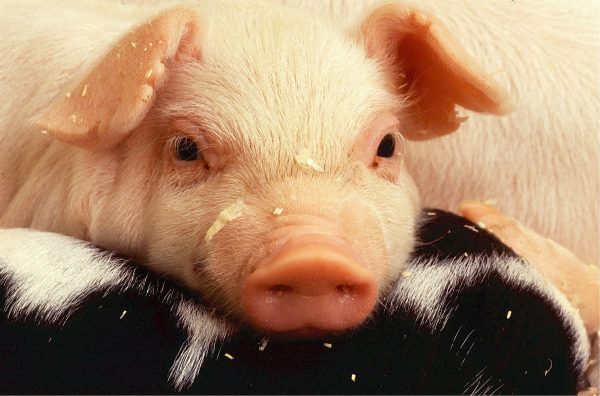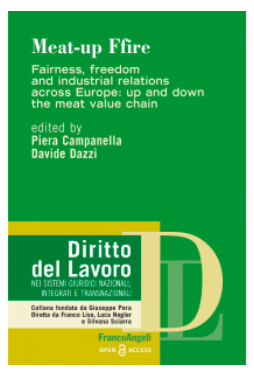The livestock sector is today at the epicentre of public debates in Europe and beyond. These debates have become dominated by interest groups who only want to spread myths and radical views about livestock farming. Ever increasing on social media and in the press, these myths and opinions end up portraying a picture that is in stark contrast with the reality experienced and lived every day by thousands of European farmers and professionals working with them on the ground. These debates have strong impacts on the views of European consumers on the role of animal products in their choice of lifestyle and they push the livestock sector into an extremely defensive corner of the society. It all negatively affects the EU livestock farming model and policy framework, increasing the challenges faced by our farming communities to ensure their economic viability, generational renewal and their capacity to adapt to societal and environmental demands.
In this context, and for the first time at EU level, over a dozen livestock organisations have decided to come together to take joint action to elevate the other side of the story, necessary to restore balance and factual information on both the impact and the contribution of the European livestock sector. With this objective in mind, European Livestock Voice has developed its own information hub, an online portal reviewing the accuracy of the most frequently made statements about livestock production, consumption and its benefits:
NO – 1kg of beef does not require 15,000L of drinking water to be produced
YES – The average size for livestock farms in Europe is below 50 hectares and Europe remains a model of family farming
NO – Using land for animal feed does not necessarily compete with land for human food
YES – European farmers care for their animals as it is fully in their interest to do so.
We are convinced that the EU livestock farming model, based on diversified, local and family farm structures, is the backbone of the EU’s rural areas. It supports a great number of jobs and industries, it contributes to the circular approach within the EU bioeconomy, while also ensuring a steady and affordable supply for sufficient, safe and nutritious food, as well as many other products and by-products, needed for a healthy lifestyle or Europe’s Cultural and Creative Industries. Removing livestock farming from Europe, a “Livestock Exit”, would have severe consequences. Europe without livestock would lose essential pasture lands, face increased forest fires, lack greatly in organic fertilizers, green energy and many other essential raw materials while contributing to an increased rural exodus. At the same time, it would mean the need to rely on imports of animal products, with less control over the production standards and pulling on the demand for fossil fuel-based materials. To support the launch of this initiative two newly appointed MEPs, also livestock farmers, Alexander Bernhuber (EPP, AT) and Jérémy Decerle (Renew Europe, FR) have decided to lead the debate in the new European Parliament by hosting the launch event of our platform today in Brussels.
For MEP Alexander Bernhuber the situation is clear “Today’s debate about livestock farming is often held on a lack of knowledge within the society. The gap between consumers and producers is getting bigger and bigger. European farmers produce at worldwide highest animal welfare standards. Nowadays the challenge is to communicate the essential work of our farmers via several channels to the consumer. European Livestock Voice created a significant platform to brighten this issue and fight against disinformation at European level. It is important to spread fact-based knowledge about today’s livestock farming within the media. Hence, I strongly support this initiative.”
On his side, MEP Jérémy Decerle commenting on the initiative said that “As a breeder of Charolais cows, but also as a Member of the European Parliament (COM AGRI), I can only welcome the launch of such a European platform, specifically dedicated to livestock farming. It could help to dispel some preconceived ideas about this profession and bring a little pragmatism into the debates. At a time when Europeans want to eat healthier and more local food, but also to better preserve their environment, farmers can be part of the solution rather than part of the problem, and the search for solutions begins with a comprehensive and rational look at the situation.”
For MEP Alexander Bernhuber the situation is clear “Today’s debate about livestock farming is often held on a lack of knowledge within the society. The gap between consumers and producers is getting bigger and bigger. European farmers produce at worldwide highest animal welfare standards. Nowadays the challenge is to communicate the essential work of our farmers via several channels to the consumer. European Livestock Voice created a significant platform to brighten this issue and fight against disinformation at European level. It is important to spread fact-based knowledge about today’s livestock farming within the media. Hence, I strongly support this initiative.”
On his side, MEP Jérémy Decerle commenting on the initiative said that “As a breeder of Charolais cows, but also as a Member of the European Parliament (COM AGRI), I can only welcome the launch of such a European platform, specifically dedicated to livestock farming. It could help to dispel some preconceived ideas about this profession and bring a little pragmatism into the debates. At a time when Europeans want to eat healthier and more local food, but also to better preserve their environment, farmers can be part of the solution rather than part of the problem, and the search for solutions begins with a comprehensive and rational look at the situation.”
MEP Clara Eugenia Aguilera García on her side commented “This initiative is a positive signal helping us in the European Parliament in our work to defend the EU livestock sector. The European livestock community works hard to ensure quality, sustainability and animal health and welfare. It has to be recognized while keeping a level playing field. Given the ever-increasing number of misconceptions, more work is needed to restore a constructive and rational discussion around a sector so important to our rural areas, our environment and our future.”
Source: www.animalhealtheurope.eu




